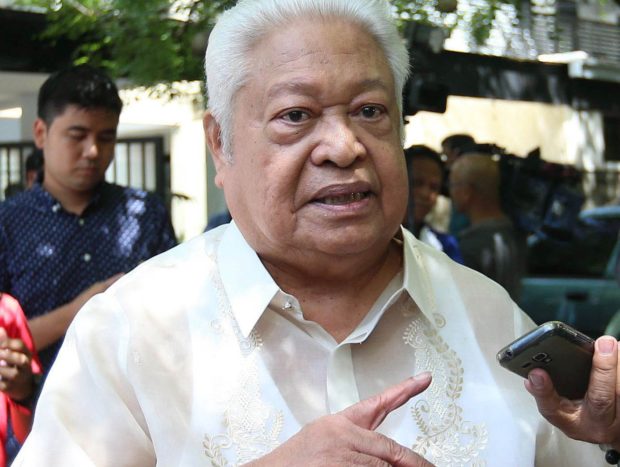SC unlikely to rule if Maharlika bill passes; Lagman won’t challenge

(Albay Rep. Edcel Lagman. INQUIRER FILE/EDWIN BACASMAS)
MANILA, Philippines — Albay Rep. Edcel Lagman, one of the six lawmakers who opposed the Maharlika Investment Fund bill, announced on Friday that he is “dousing” any petitions challenging the bill’s constitutionality once it becomes a law, citing no issues that require the Supreme Court review.
“Although I am against the Maharlika Investment Fund for not being seasonable as major negative economic indicators currently pummel the economy, congressional wisdom and expediency are not justiciable issues before the Supreme Court. Thus, I am dousing cold water on projected petitions to challenge the constitutionality of the MIF before the High Court once it is signed into law by President Ferdinand Marcos, Jr.,” Lagman said in a statement.
Quoting the court decision on the case of former Bataan Rep. Enrique Garcia vs. the Executive Secretary on April 2, 2009, Lagman said that “the courts do not involve themselves with or delve into the policy or wisdom of a statute.”
“The remedy against an unwise or improvident law is to seek its amendment or repeal by the legislature itself,” he said.
Opposition senators Aquilino Pimentel III and Risa Hontiveros have expressed their willingness to support efforts to bring the bill to the SC.
Pimentel previously questioned why the Senate did not ratify the bicameral conference committee report, which had the House’s agreements to the higher chamber’s amendments.
Lagman, however, clarified that the Senate did not need to do this.
“The Senate did not have to ratify the bicameral conference committee report because its version was accepted in its entirety by the House panel, and the House ratified the bicam report,” explained Lagman.
Nonetheless, Lagman reiterated that the money earmarked for the Maharlika fund bill (MIF) could be used better.
“The projected P500-B funding for MIF could be put to better use as budgetary support to finance in the national budget basic socio-economic services and infrastructure development, rather than invest the same for contingent and lengthy ventures while the country does not have a revenue surplus and even has a surfeit of negative economic indicators like a huge fiscal deficit; high inflation rate; a very low human development index ranking; and poor gross domestic product per capita,” said Lagman.
After being adopted by the lower chamber, the MIF bill now only awaits the signature of the President before it becomes law.